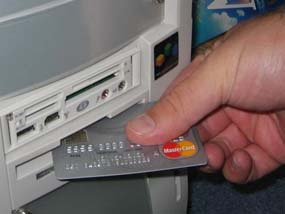 Sometime soon, Twitter is expected to unveil its plan to make money. Based on comments made by Twitter co-founders Biz Stone and Evan Williams recently, it seems likely the plan will involve charging companies for accounts with special privileges.
Sometime soon, Twitter is expected to unveil its plan to make money. Based on comments made by Twitter co-founders Biz Stone and Evan Williams recently, it seems likely the plan will involve charging companies for accounts with special privileges.
In New York Magazine this week, both Stone and Williams said that charging companies for brand verification is something that the company was looking into. This makes a lot of sense, especially given the rise of fake profiles, like the one that was recently taken down for the Dalai Lama. They note that a paid corporate account could have features like a prompt when a new user joins a company’s feed.
Then today, Stone made similar comments to the UK-based Marketing Magazine. “We are noticing more companies using Twitter and individuals following them. We can identify ways to make this experience even more valuable and charge for commercial accounts,” Stone told the publication. He went on to note that other ideas of charging companies to use Twitter to market products and/or provide customer service were on the table.
The latter part is something that companies like Zappos and Comcast have been doing for a while. They have employees that scan Twitter (something much easier now with Twitter Search) to see who is saying something about their company. If it’s something negative, or there is some kind of problem mentioned, these Zappos or Comcast Twitter users send messages to the user having the problem. I’ve experience this first hand with Comcast’s Twitter rep, Frank Eliason, who tweets from the account ComcastCares.
Marketing products on Twitter is a potentially more interesting idea from a revenue perspective. Late last year, Dell reported that it had made over $1 million in revenue thanks to Twitter. More recently, Dell announced it would start offering exclusive deals to users who follow its accounts on Twitter. With Dell using Twitter to spur sales and clearly making money off it, it makes sense that Twitter should be getting some of that. But the question of how much is a tricky one.
“If it becomes complicated and costly, our instinct would be to move elsewhere,” Bob Pearson, vice-president of communities and conversations at Dell told Marketing Magazine. Marketing Magazine asked other companies how they’d feel about having to pay to market on Twitter, and their reactions were similar to Pearson’s.
This idea of charging for corporate accounts has been around since at least October, when CNET reported hearing whispers of it. Since then, we’ve heard the exact same thing from a few other sources. In November, Williams started to float that idea out there publicly. But now, with talk about the plan picking up, I think it’s a safe bet that it’s coming sooner rather than later.
Twitter has raised over $20 million in funding. Recent reports suggest that it’s looking for another $20 or so million, which could push its valuation close to a quarter of a billion dollars.
Update: Stone wrote a post today on Twitter’s blog to clarify some of the speculation. Here’s the key part:
However, it’s important to note that whatever we come up with, Twitter will remain free to use by everyone—individuals, companies, celebrities, etc. What we’re thinking about is adding value in places where we are already seeing traction, not imposing fees on existing services. We are still very early in the idea stage and we don’t have anything to share just yet despite a recent surge in speculation. When we do, we’ll be sure to let you know.
You can find me on Twitter here along with fellow VentureBeatniks Eric Eldon, Dean Takahashi, Anthony Ha, Chris Morrison, Tam Vo, Camille Ricketts, Dan Kaplan and Matt Marshall. We have a VentureBeat account (for our posts) as well.
[photo: flickr/garethjmsaunders]
VentureBeat's mission is to be a digital town square for technical decision-makers to gain knowledge about transformative enterprise technology and transact. Learn More
